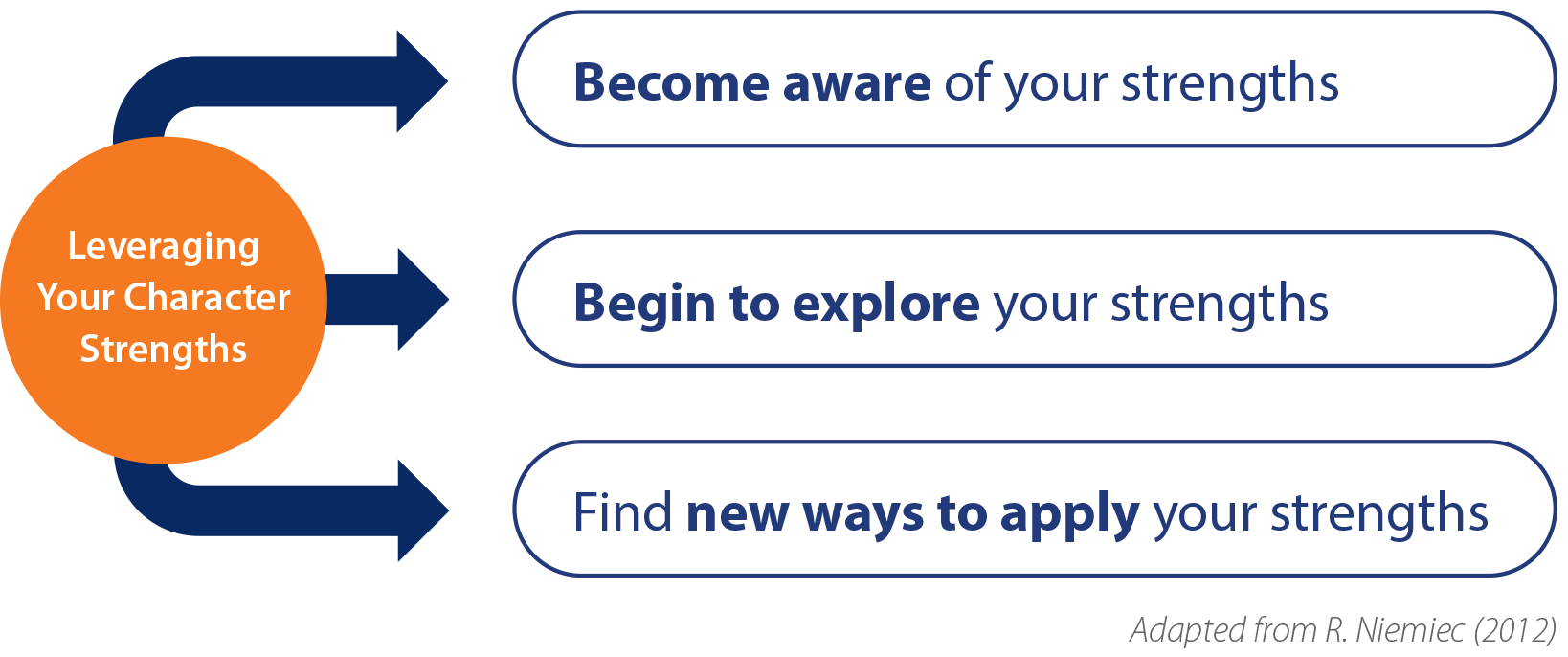“When wellbeing comes from engaging our strengths and virtues,
our lives are imbued with authenticity.”
— Martin Seligman —
SKILL
After decades of assessing, measuring, and treating human suffering (i.e., anxiety, depression, etc.), researchers Martin Seligman and Christopher Peterson decided to shift their focus to what enables human thriving. Together, they created the Values in Action Survey, or The VIA. This 96-item survey identifies your capacity to exhibit each of 24 Character Strengths. These 24 strengths were identified as being valued by humans across many cultures and throughout history. The VIA survey has been taken by millions worldwide and is a scientifically validated tool for identifying the rank order of your Character Strengths. A guide is available to make the survey accessible to individuals with intellectual and developmental disabilities.
The Character Strengths at the top of your list are known as your Signature Strengths. These are the strengths that come most naturally to you. When you look at your Signature Strengths, you likely have as many stories to tell from childhood about those strengths as you do from last week. No one has to remind you to use your Signature Strengths; these are where you innately shine. When you experience a challenge or adversity, you will most likely rely on your Signature Strengths to pull you through.
The VIA Survey Character Strengths

SCIENCE
The evidence is clear — knowing and using your strengths positively impacts your life. Individuals who keep their strengths top of mind and live them each day are significantly more likely to thrive. The benefits of strengths span diverse populations and fields, including psychotherapy, organizations, education, and disability. Research indicates a three-pronged approach to character strengths is best — become aware, begin to explore, and continually find new ways to apply your strengths in order to thrive!

BENEFITS
People who know and use their strengths experience…
- Improved mental, physical, and social health
- Greater happiness and overall wellbeing
- Increased positive affect
- Higher work satisfaction and positive association with work
- Improved relationships
- Greater psychological resilience

